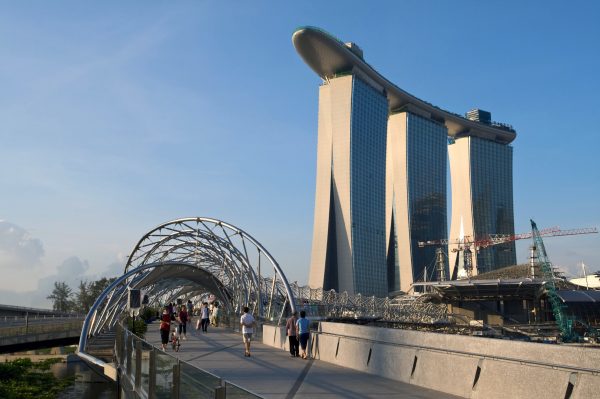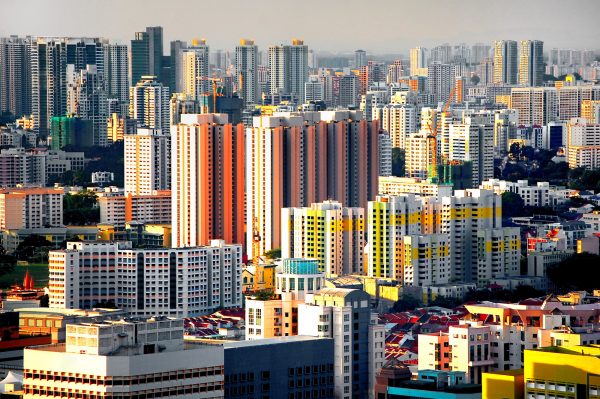Vietnam and Russia yesterday signed an agreement to increase cooperation on nuclear power generation, marking a potentially crucial development in Hanoi’s reborn nuclear energy ambitions.
As per the Associated Press, the agreement was signed between Russia’s state-owned nuclear energy company Rosatom and Vietnam’s state-owned power utility EVN during a visit to Hanoi by Russian Prime Minister Mikhail Mishustin.
Mishustin also held bilateral talks with his counterpart Pham Minh Chinh and met To Lam, the chief of the Communist Party of Vietnam, and Tran Thanh Man, the chairman of Vietnam’s National Assembly. The two sides have also signed a series of agreements pledging cooperation in the digital economy and wireless communications. Moscow also agreed to transfer a maritime research vessel to Vietnam under a deal signed by Vietnam’s Ministry of National Defense and Russia’s Ministry of Science and Higher Education.
“Vietnam is an important partner of Russia in Southeast Asia,” Mishustin said, the AP reported. “Today we plan to discuss with you a comprehensive plan for cooperation between Russia and Vietnam, which runs until 2030.”
While Vietnam and Russia only engage in limited trade and economic intercourse – bilateral trade came to just $3.6 billion in 2023, far short of the $171 billion in trade that took place with China and the $111 billion with the United States – the countries remain close partners on defense and energy issues.
Vietnam has considered establishing nuclear power generation since 1995, and firm proposals surfaced in 2006, for the construction of two nuclear power plants in Ninh Thuan province in the country’s south, with a combined capacity of 4,000 megawatts. In 2016, these plans were canceled due to a number of concerns, including safety risks and “economic conditions.”
However, the increased energy needs of Vietnam’s crash industrialization has prompted the government to reconsider the nuclear option, in order to marinating economic growth and achieve net-zero emissions by 2050. In November, Prime Minister Pham Minh Chinh announced that the government had put forward a proposal to the Politburo of the Communist Party of Vietnam (CPV) to restart its nuclear energy project.
According to government estimates, power consumption is set to increase by 12-13 percent this year, and reach 1,200 billion kWh by 2045, significantly higher than the 1,000 billion kWh projected in the 8th National Power Development Plan, which was released in 2023. A year prior to that, Minister of Industry and Trade Nguyen Hong Dien told the National Assembly that while the government was committed to boosting renewable energy capacity, it lacked a “stable energy source” that could overcome the intermittency of solar, hydropower, and wind power. As a result, he said, “developing nuclear power is an ongoing inevitable trend in the world.”
As the AFP news agency reported, no details about the agreement were immediately available, but Vietnam’s Ministry of Science and Technology said that Rosatom director Alexei Likhachev was “very interested” in cooperating with the country on the aborted Ninh Thuan nuclear power project.
Before its cancelation in 2016, the Ninh Thuan project was originally to be developed with help from Rosatom and the Japanese consortium JINED. The only nuclear reactor in Vietnam is a 500-kilowatt research reactor in Dalat, which was built with Rosatom’s assistance in the early 1980s.
Is Vietnam ready to make the jump to nuclear? In November, Dr. Richard Ramsawak, a lecturer at RMIT University Vietnam, argued there were three main obstacles for the country to overcome. The first is cost. While the country’s economy has grown considerably since 2016 – GDP has grown from $251.7 billion in 2016 to $429.8 billion in 2023 – nuclear power plants require a punishing initial investment that the country will have to consider carefully. The second is the question of safety and the public’s perceptions thereof, which remain colored by the 2011 Fukushima disaster. The third is developing the workforce “essential for nuclear energy development.”
The latter goal could conceivably be addressed in collaboration with Russia – several hundred Vietnamese students and engineers were already studying and training in Russia prior to the cancelation of the last nuclear energy program in 2016 – but in any case, involving Russia, there is also the question of geopolitical frictions.
In recent years, the U.S. government has imposed sanctions on dozens of Rosatom officials, most recently as part of the “sweeping sanctions” imposed on the Russian energy sector on January 10. How and to what extent this might obstruct the development of a civilian nuclear energy program in Vietnam remains to be seen.



















Discussion about this post